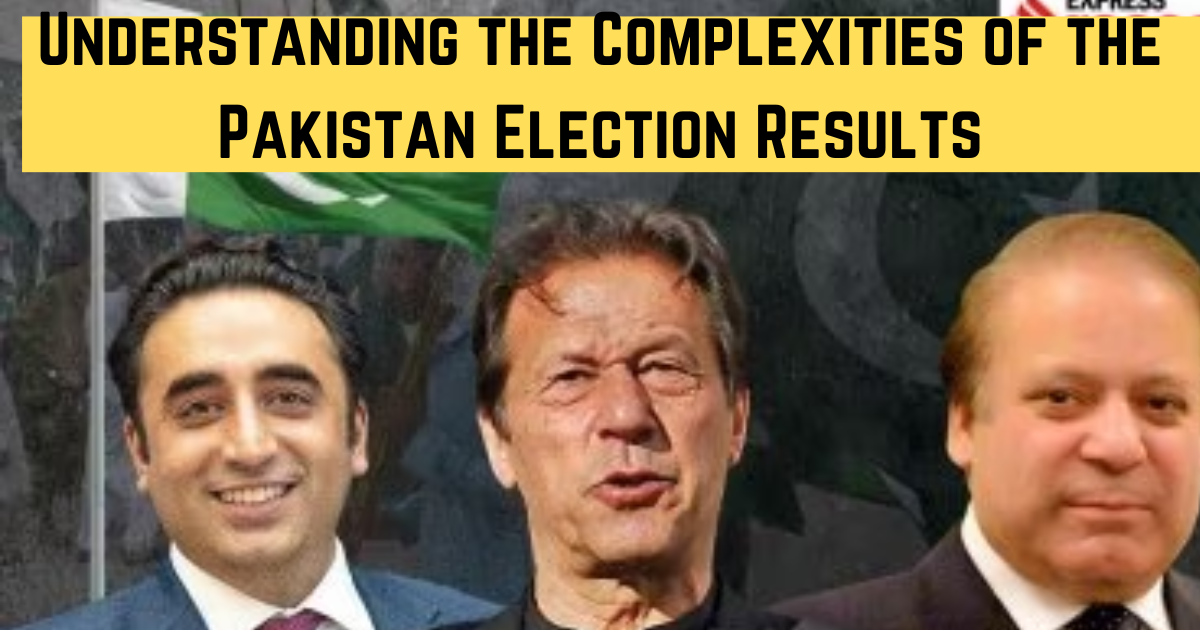Pakistan’s Post-Election Turmoil: Coalition Building

The aftermath of Pakistan’s recent general election has ushered in a period of political turbulence, as key parties scramble to form coalitions and secure the necessary majority to govern. With no single party fetched majority votes, formation of strategic alliance have taken center stage in Islamabad’s political landscape.
Coalition Plans Unveiled: PTI and PPP Take Different Paths
In a surprising turn of events, the Pakistan Tehreek-e-Insaf (PTI) and the Pakistan Peoples Party (PPP) have announced separate coalition plans, each aiming to consolidate power and strengthen their political imfluence. if you follow Pakistan election you must know these are two rival parties joined hands together.
1. PTI’s Religious Coalition Strategy
The PTI, led by former Prime Minister Imran Khan, has opted for a coalition with religious parties, signaling a strategic shift in its approach to governance. Independent candidates affiliated with PTI are poised to form a federal government and one in Punjab province, aligning with minority party Majlis-e-Wahdat-Muslimeen (MWM) and religious party Jamaat-e-Islami (JI) in Khyber Pakhtunkhwa .
2. PPP’s Alliance with PMLN
In a contrasting move, the PPP has chosen to ally with its rival, the Pakistan Muslim League-Nawaz (PMLN), in a bid to collectively lead the country. Despite historical animosities, PPP chairperson Bilawal Bhutto-Zardari has endorsed PMLN’s candidate for prime minister, and claim sopport to PML-N and political alignment to join political stability
Imran Khan’s Stance and Allegations of Vote Tampering
Imran Khan’s steadfast refusal to engage with the PPP, PMLN, and MQM-P reflects his uncompromising stance against what he perceives as “corrupt” political entities. Allegations of vote tampering and manipulation further exacerbate/making worse the political impasse, as PTI contests the legitimacy of election results .
Analysts’ Perspectives: Assessing Political Strategies
Political analysts weigh in on the evolving political landscape, with opinions divided on the strategic choices made by key players.
- Benazir Shah underscores the PPP’s calculated move to consolidate power in Punjab and position itself for future electoral gains.
- Mehmal Sarfraz questions Imran Khan’s confrontational politics and rigid stance, highlighting the imperative of dialogue and cooperation in a democratic framework.
The Path Forward: Challenges and Opportunities
As Pakistan navigates the complexities of coalition politics, the road ahead remains fraught with challenges and uncertainties. Economic woes, security threats, and governance deficits loom large, demanding cohesive leadership and inclusive governance to steer the nation towards stability and progress.
Pakistan’s post-election landscape epitomizes the intricacies of democratic governance, where alliances are forged, and rivalries transcend for the sake of power and governance. As political parties jostle for dominance, the true test lies in their ability to transcend partisan interests and prioritize the welfare of the nation. Amidst the flux of coalition-building and political maneuvering, the fate of Pakistan’s democratic experiment hangs in the balance, awaiting decisive leadership and collaborative efforts to chart a path towards prosperity and stability.
